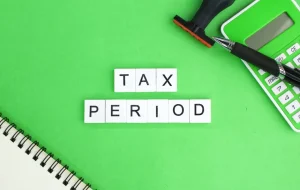Beyond market trends, investors looking for superior returns explore the world of stock picking. The right selections can be a powerful driver for wealth accumulation.
After finishing at $148.44 in the prior trading day, Johnson & Johnson (NYSE: JNJ) closed at $146.36, down -1.40%. In other words, the price has decreased by -$1.40 from its previous closing price. On the day, 10.21 million shares were traded. JNJ stock price reached its highest trading level at $148.82 during the session, while it also had its lowest trading level at $146.115.
Ratios:
Our goal is to gain a better understanding of JNJ by taking a closer look at its different ratios. It provided that stocks Price–to–Cash (P/C) ratio for the trailing twelve months (TTM) is standing at 9.09 whereas its Price-to-Free Cash Flow (P/FCF) for the term is 17.31. For the most recent quarter (mrq), Quick Ratio is recorded 1.03 and its Current Ratio is at 1.26. In the meantime, Its Debt-to-Equity ratio is 0.67 whereas as Long-Term Debt/Eq ratio is at 0.49.
On November 15, 2024, Wolfe Research started tracking the stock assigning a Outperform rating and target price of $190.Wolfe Research initiated its Outperform rating on November 15, 2024, with a $190 target price.
Insider Transactions:
The insider trade also gives investors a glimpse into the future direction of stock prices, which can be beneficial to investors. A recent insider transaction in this stock occurred on Feb 25 ’25 when Decker Robert J sold 6,999 shares for $165.88 per share. The transaction valued at 1,160,994 led to the insider holds 21,001 shares of the business.
Decker Robert J bought 6,999 shares of JNJ for $1,161,010 on Feb 25 ’25. On Feb 18 ’25, another insider, Schmid Timothy, who serves as the EVP, WW Chair, MedTech of the company, sold 403 shares for $156.15 each. As a result, the insider received 62,928 and left with 15,098 shares of the company.
Valuation Measures:
Investors should consider key stock statistics when deciding whether to invest or divest. In the wake of the recent closing price, JNJ now has a Market Capitalization of 352152420352 and an Enterprise Value of 365623869440. As of this moment, Johnson’s Price-to-Earnings (P/E) ratio for their current fiscal year is 16.27, and their Forward P/E ratio for the next fiscal year is 13.18. The expected Price-to-Earnings-to-Growth (PEG) calculation for the next 5 years is 2.76. For the stock, the TTM Price-to-Sale (P/S) ratio is 3.95 while its Price-to-Book (P/B) ratio in mrq is 4.51. Its current Enterprise Value per Revenue stands at 4.093 whereas that against EBITDA is 12.177.
Stock Price History:
The Beta on a monthly basis for JNJ is 0.39, which has changed by -0.051335216 over the last 52 weeks, in comparison to a change of 0.11241627 over the same period for the S&P500. Over the past 52 weeks, JNJ has reached a high of $169.99, while it has fallen to a 52-week low of $140.68. The 50-Day Moving Average of the stock is -7.27%, while the 200-Day Moving Average is calculated to be -6.78%.
Shares Statistics:
The stock has traded on average 9.68M shares per day over the past 3-months and 7917480 shares per day over the last 10 days, according to various share statistics. A total of 2.41B shares are outstanding, with a floating share count of 2.41B. Insiders hold about 0.14% of the company’s shares, while institutions hold 73.58% stake in the company. Shares short for JNJ as of 1745971200 were 19677594 with a Short Ratio of 2.03, compared to 1743379200 on 19147099. Therefore, it implies a Short% of Shares Outstanding of 19677594 and a Short% of Float of 0.8200000000000001.
Dividends & Splits
In the trailing 12 months, JNJ’s forward annual dividend rate was 4.96, compared to 4.96 this year. Against a Trailing Annual Dividend Yield of 0.033414174The stock’s 5-year Average Dividend Yield is 2.76. The current Payout Ratio is 84.80% for JNJ, which recently paid a dividend on 2025-02-18 with an ex-dividend date of 1748304000. Stock splits for the company last occurred on 2001-06-13 when the company split stock in a 2:1 ratio.








